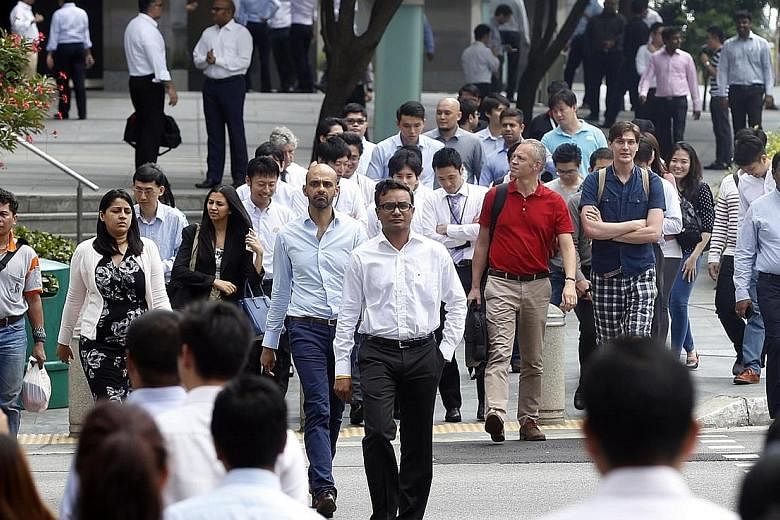Most Singapore residents think that multiracial policies, such as the Maintenance of Religious Harmony Act and the Government's categorisation of people by race, help to build trust between the races.
But they also find it hard to talk about race issues, and consider certain areas of discussion taboo.
This reticence towards discussion stems from a fear of offending other races.
These were the findings from a Channel NewsAsia-Institute of Policy Studies (IPS) poll of 2,000 residents and citizens on their attitudes towards race relations, released yesterday.
More than 70 per cent of the respondents view various policies meant to safeguard racial and religious harmony positively.
For instance, nearly nine in 10 people think that the annual Racial Harmony Day celebration in schools helps students of different races interact more with one another. They spend the day wearing ethnic attire and learning about the cultural practices of other ethnic groups, among other activities.
Two-thirds of respondents also think the Government's model of classifying people by race - commonly referred to as the Chinese, Malay, Indian and Others (CMIO) model, helps people of different races interact more with one another.
The ethnic quotas in place for public housing are based on the CMIO model. They prevent an overwhelming proportion of any one race from being concentrated in one area. The CMIO model also helps ensure that the racial mix of students in schools reflects that of Singapore.
IPS senior research fellow Mathew Mathews, who led the study, said today's youth are likely to be less racist and have more chances to mix with those of other races.
"Sometimes, we are nostalgic about the olden days. But the reality is that many of those from older cohorts lived in rather segregated conditions - kampungs and schools which catered to particular races," he said.
"The young today grow up with not just more opportunities for inter-ethnic mingling, but grow up in an era when, internationally, there is a fight against prejudice."
The survey showed two-thirds of respondents feel that the Maintenance of Religious Harmony Act safeguards minority rights.
The law gives the Minister of Home Affairs the power to issue a restraining order against a person who tries to foster ill will between different religious groups.
But the survey also showed most people did not want public information, based on race, to be released for issues like crime, educational performance or social problems.
Seven in 10 did not want the type of crime that different races are more likely to commit to be made known. About two in three also did not want the educational performance of the different races to be public information.
Neither did they want the social problems of different races, including drug abuse, gambling and alcoholism, to be publicised.
More prefer that the successes of each race - rather than social problems of the different races - be made available as public information.
About two-thirds of respondents found discussions of race disconcerting, as they think such dialogues can be offensive and lead to tension.
They believe that talking about race issues causes unnecessary tension, and that it is hard to discuss such issues without someone getting offended, the survey showed.
A quarter of respondents wanted to ask someone about issues related to their race - but did not. These are mostly issues about religious beliefs and practices associated with races, and cultural practices.
The survey cited examples that included questions on how a Chinese, Indian or Malay wedding or funeral is conducted, or why Indians eat with their hands. Other examples were about religious beliefs such as why the Chinese burn joss paper and why Muslims do not eat pork.


